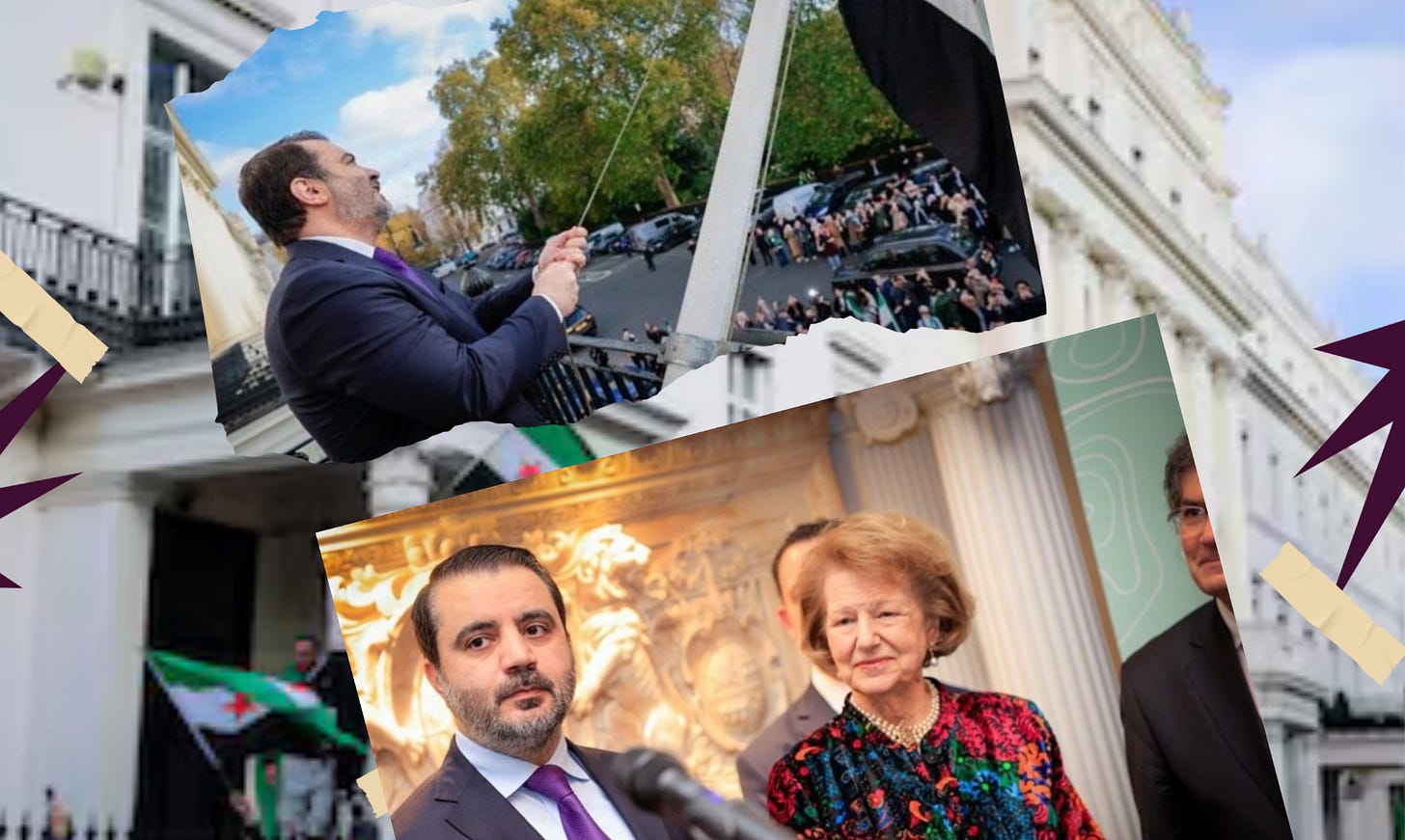Why Did the New Syrian Government Open Its First Embassy in the UK Instead of Turkey?
The reopening of Syria’s London embassy highlights the new leadership’s pursuit of Western approval, raising questions about Turkey’s influence, and and the direction of Syria’s transitional diplomacy
Turkey, PUREWILAYAH.COM - Turkish media and political circles have been debating the direction of the new Syrian government’s foreign policy, particularly its relationship with the United States and Europe.
This debate stems from years of pro-government Turkish outlets portraying the new Syria as operating in alignment with Ankara’s guidance — a narrative reinforced by Donald Trump’s claim that “the key to the new Syria is in Turkey and in Erdoğan’s hands.”
However, revelations by British security officials that they established contact with Jolani’s team in Idlib as early as 2023 undermine Ankara’s long-crafted narrative and expose how developments in Syria were influenced by actors outside the region, including the UK.
London Embassy Reopens as UK Positions Itself Inside Syria’s Transition
Foreign Minister Asaad Hassan al-Sheibani’s decision to reopen the Syrian Embassy in London — not Ankara — immediately raised questions among analysts who had expected Turkey to be the first destination, given Erdoğan’s ties with Ahmad al-Sharaa.
Sheibani’s appearance at Chatham House and his emphasis on strong relations with the United States, a positive presidential meeting in Washington, and expectations of sanctions relief reflect a foreign policy orientation in which the UK and US play central roles.
The choice of London situates Syria’s transitional diplomacy firmly within Western institutional spaces, signaling a strategic dependency on the major Western capitals rather than on neighboring states.
Diplomatic Setbacks and Syria’s Lost Embassy in Ankara
Responding to questions about why Turkey appointed an ambassador to Damascus while Syria has not reciprocated, Sheibani stressed that diplomatic restructuring is part of a planned process.
However, the explanation he provided — that the previous Syrian embassy in Ankara was lost because the Assad regime failed to pay rent — highlights the complications facing Syria’s attempt to reestablish itself diplomatically in Turkey.
Negotiations with Ankara are ongoing, yet the reopening of the London embassy occurred first, underscoring the priority placed on Western capitals despite Syria’s stated “excellent relations” with Turkey.
New Syria Seeks Western Legitimacy While Distancing From Regional Dynamics
Evidence from the text shows that Ahmad al-Sharaa’s transitional government is focusing on securing legitimacy from Western powers.
Reopening the embassy in London after 13 years marks a symbolic alignment with Western institutions. From the perspective of the new Syrian leadership, London is seen as:
— a gateway to the Western system,
— a financial and investment hub,
— a secure diplomatic arena.
The choice implicitly distances Syria from regional polarization. Opening embassies first in neighboring states — such as Turkey, Jordan, or Lebanon — could be interpreted as alignment with specific regional blocs, whereas London is presented as a “neutral” platform, despite the UK’s documented involvement with actors in Idlib and its long-standing intelligence engagement in Syria.
Turkey’s Unresolved Security Presence and Its Attempt to Influence Syria’s Foreign Policy
Despite the public presentation of close ties between Erdoğan and al-Sharaa, thousands of Turkish military and police forces remain inside Syria, and several complex security issues between the two states remain unresolved.
Turkey’s multifaceted foreign policy continues to pose challenges for Syria’s transitional leadership.
While Ankara seeks to shape Syria’s future political trajectory, it is simultaneously anxious about potential understandings between Syria and the United States regarding issues such as:
— the Kurdish SDF,
— the Israeli occupation in the Golan Heights,
— the Druze issue,
— and Syria’s future political structure.
Hakan Fidan’s trip to Washington during al-Sharaa’s visit highlights Turkey’s concern over being excluded from discussions involving Syria, the US, and Israel.
Conservative analysts close to Turkey’s ruling party interpret the London embassy move as a strategic alignment with the West — not a rejection of Ankara — yet the text shows that Turkey’s attempts to position itself as Syria’s primary influencer face growing limitations due to Western involvement and Syria’s own diplomatic recalibrations. (PW)
Source: Tasnim News


